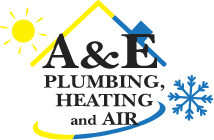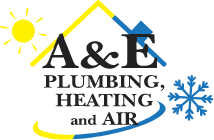Rebates and Relief: Making the R-454B HVAC Switch Affordable
April 8th, 2025
6 min read
By Daphne Hunt

Replacing your HVAC system is one of those homeownership milestones that sneaks up on you. One day it's humming along, and the next it's leaking refrigerant, making strange noises, and forcing you to Google things like "SEER2" or "why is my AC screaming."
day it's humming along, and the next it's leaking refrigerant, making strange noises, and forcing you to Google things like "SEER2" or "why is my AC screaming."
And once you discover that your system uses R22 or 410A — refrigerants that are either banned or actively being phased out — you realize that it's not just a repair you're dealing with. You're looking at a full system replacement, and probably sooner than you'd like.
By the end of this article, you’ll know all about the rebates, tax incentives, and financing options that can help make upgrading to an R-454B system more affordable. Whether you're dealing with an emergency replacement or planning ahead, this guide will help you make a smarter, more financially manageable decision.
Why R-454B Systems Are the New Standard
You may already know that R-454B is replacing R22 and 410A because it’s better for the environment, has a lower global warming potential, and meets new federal regulations.
But let’s be real: those reasons don’t mean much if you’re staring down a five-figure HVAC estimate.
There are multiple programs available to help you upgrade to a system that uses R-454B refrigerant — and stacking those benefits can significantly reduce your out-of-pocket costs.
Federal Tax Credits for Energy-Efficient HVAC Systems
The Inflation Reduction Act (IRA) has expanded tax credits for homeowners who install high- efficiency HVAC systems. If you install a qualifying heat pump or central AC unit that uses R-454B and meets SEER2 requirements, you may be eligible for:
efficiency HVAC systems. If you install a qualifying heat pump or central AC unit that uses R-454B and meets SEER2 requirements, you may be eligible for:
- Up to $2,000 in federal tax credits through the Energy Efficient Home Improvement Credit (25C)
- Bonus credits if your upgrade includes other improvements like insulation or energy-smart thermostats
To qualify:
- The unit must meet minimum energy efficiency standards
- Installation must be done by a certified professional
- You’ll need to claim the credit when filing your federal taxes (consult your tax advisor)
This isn’t a rebate at the time of purchase, but it can reduce what you owe at tax time, or increase your refund if you're eligible.
Oregon Rebates for Energy-Efficient HVAC Systems
Oregon offers a variety of programs to help homeowners, renters, and landlords upgrade to high-efficiency heat pump systems. These rebates and incentives are designed to make the transition to cleaner, more efficient HVAC systems easier and more affordable.
1. Energy Trust of Oregon Standard Incentives
If you're served by Portland General Electric, Pacific Power, NW Natural, Cascade Natural Gas, or Avista, you may qualify for Energy Trust of Oregon's core incentives:
Avista, you may qualify for Energy Trust of Oregon's core incentives:
- Up to $4,000 for ducted heat pump installations
- Up to $3,500 for ductless mini-split systems
- Up to $1,000 for extended capacity heat pump upgrades
How to qualify:
- Must be an Oregon resident with eligible utility provider
- Work with a participating Energy Trust trade ally contractor
How to apply:
- Your contractor will apply the incentive directly to your invoice, reducing your upfront cost. You don’t need to fill out rebate forms yourself.
2. Regional Heat Pump Promotion for Eastern Oregon
For residents in Gilliam, Morrow, Umatilla, and Wallowa counties, additional regional incentives are available:
available:
- Up to $4,000 off ducted systems
- Up to $3,500 off ductless systems
These systems can cut heating and cooling costs by 40–60%. Like standard Energy Trust incentives, these are applied directly through contractors or community partners.
To qualify:
- Live in one of the four eligible counties
- Install with a participating contractor
Steps to apply:
- Contact a participating trade ally or community partner
- They handle all the paperwork and deduct the incentive from your final bill
3. Oregon Heat Pump Purchase Program
This state-run program offers $2,000 rebates to homeowners, landlords, and developers for installing eligible heat pump systems. The program is aimed at making energy-efficient heating more accessible statewide.
Eligibility:
- Must live in Oregon
- Install an approved heat pump
- Available to homeowners, rental property owners, and developers
How to apply:
- Apply online through the Oregon Department of Energy website
- Submit proof of income, installation, and system eligibility
4. Oregon Rental Home Heat Pump Program
This program provides significant incentives for landlords to upgrade tenant homes:
- Up to $5,000 for standard rental property heat pump installs
- Up to $7,000 if the tenant qualifies as low- or moderate-income or the property is a manufactured home or RV
To qualify:
- Be a property owner or landlord in Oregon
- Install a qualifying heat pump system
- Additional documentation required for income-based bonus
How to apply:
- Apply through the state energy program portal
- Submit required income and property documentation
Whether you're a homeowner looking for a standard rebate, a landlord upgrading multiple units, or living in one of Oregon's more rural counties, there are programs in place to help you make the switch to high-efficiency, R-454B-compatible systems. Most programs can be combined, and many are designed to make the upfront cost more manageable with immediate discounts or tax-time savings.
Washington Rebates for Energy-Efficient HVAC Systems
Washington State offers several programs to help homeowners and renters upgrade to more efficient, eco-friendly HVAC systems — many of which are compatible with R-454B refrigerant. These programs are funded at both the state and federal level and are designed to make home electrification and energy savings accessible to more Washingtonians.
1. Washington Home Electrification and Appliance Rebates (HEAR) Program
Funded by the Climate Commitment Act, the HEAR program offers rebates to low- and moderate- income households for upgrading to high-efficiency electric equipment, including heat pumps.
income households for upgrading to high-efficiency electric equipment, including heat pumps.
- Rebate amounts vary based on household income and equipment type
- Eligibility is determined by income qualifications and utility service area
- Funding is limited and awarded on a first-come, first-served basis
To qualify:
- Must be a Washington resident
- Meet income requirements (based on area median income)
- Install approved high-efficiency electric equipment such as heat pumps
How to apply:
- Check eligibility through the Washington State Department of Commerce
- Work with approved contractors who help submit documentation
- Applications typically open in cycles, so watch for announcements and deadlines
2. Seattle's Clean Heat Program
The City of Seattle offers incentives and guidance for homeowners transitioning to clean heating systems.
systems.
- Up to $2,000 in federal tax credits available for installing a qualifying heat pump under the Inflation Reduction Act
- Local rebates or pilot programs may apply depending on the property type and zip code
- Focuses on replacing oil, propane, or natural gas systems with electric heat pumps
To qualify:
- Be a Seattle homeowner
- Replace a fossil-fuel based heating system with a qualified electric system
How to apply:
- Visit the Seattle Clean Heat website and sign up for updates or pilot program details
- Choose a certified contractor from the city’s recommended list
3. Puget Sound Energy (PSE) Rebates
PSE offers rebates for energy-efficient electric heating equipment, including heat pumps:
- Up to $2,400 for heat pump conversions
- Additional rebates for smart thermostats and insulation upgrades
To qualify:
- Be a PSE electricity customer
- Install qualifying equipment through a PSE-recommended contractor
How to apply:
- Submit application via PSE’s online portal
- Contractor provides invoice and equipment documentation
4. Clark Public Utilities Heat Pump Rebates
Clark County residents may qualify for:
- Up to $1,500 for ducted heat pump installation
- Up to $2,000 for ductless systems
To qualify:
- Be a Clark Public Utilities customer
- Use an approved installer
How to apply:
Work with a utility-approved contractor who will help submit rebate forms
5. Snohomish County PUD Energy Efficiency Rebates
Offers rebates for both ducted and ductless heat pumps:
- Up to $2,000 for ductless heat pump installation
- Smaller rebates for insulation, windows, and other energy-efficiency improvements
To qualify:
- Be a SnoPUD customer
- Install through a participating contractor
How to apply:
- Visit SnoPUD’s website to download rebate forms
- Submit documentation after installation is complete
Manufacturer Promotions for Energy-Efficient HVAC Systems
HVAC manufacturers like Trane, American Standard, and Mitsubishi Electric frequently offer limited- time rebates and seasonal promotions when you purchase qualifying systems. These promotions can include:
time rebates and seasonal promotions when you purchase qualifying systems. These promotions can include:
- Instant cash-back offers on select models
- Discounted or free smart thermostats with qualifying installations
- Extended warranties at no additional cost
These deals vary by region and time of year, so it’s always smart to:
- Ask your contractor what manufacturer incentives are available
- Check the manufacturer’s rebate or promotions page directly
- Look for special dealer-only offers that may not be widely advertised
Tip: Spring and fall are typically the best times to shop, as manufacturers often roll out promotions to keep sales steady between peak heating and cooling seasons.
Flexible Financing Through A&E Plumbing, Heating and Air
In addition to rebates and manufacturer incentives, A&E Plumbing, Heating and Air offers special in-house financing options to make upgrading more affordable—especially if your system fails unexpectedly.
Whether you're installing a ductless system, a high-efficiency heat pump, or upgrading to a 454B-compatible model, financing can help ease the upfront cost. Our team can walk you through the options and help you apply directly during our scheduled visit.
Making the Numbers Work for You for Your HVAC Upgrade
When you started reading this, you might have been dreading the idea of replacing your HVAC system. Maybe your old system still technically works, or maybe a recent repair estimate made your jaw drop.
system. Maybe your old system still technically works, or maybe a recent repair estimate made your jaw drop.
If you’re still unsure what your current system uses or whether you qualify for these programs, talk to a certified HVAC contractor. They can walk you through options, help with paperwork, and explain which models check all the right boxes.
You don’t have to rush or panic. But now you’re equipped to plan ahead and make a smart, cost-effective upgrade.
Because when it comes to home comfort, being informed beats being surprised—every single time.
Daphne Hunt holds a bachelor's degree in English and Mass Communication and has a lifelong passion for writing. She thrives on using her skills to craft compelling pieces that inform, inspire, and connect with readers.



